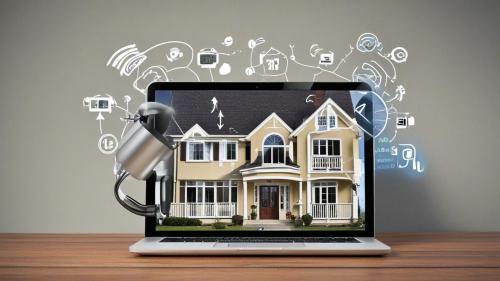The shift to remote work has brought about a seismic change in the traditional concept of home. No longer just a personal refuge, homes have become hybrid spaces where work and family coexist, often with blurred lines. This transformation has introduced a new set of challenges and opportunities in the realm of home security.
The first challenge is the increased need for cybersecurity. With more people working remotely, the number of devices linked to home networks has multiplied, exposing these networks to a higher risk of cyberattacks. Companies are investing in secure VPNs and encryption protocols, but individuals also need to stay vigilant about using strong passwords and regularly updating their software.
It's not just the digital world that's seen disruption. Physical security concerns have also evolved. With homeowners spending more time indoors, the likelihood of spotting potential threats increases. However, this also means that families must strategize for new scenarios, such as handling deliveries while maintaining security or balancing privacy when home offices are often in view of the street.
Moreover, the trend of telecommuting has led to a rise in people moving from urban to suburban or rural areas. This shift necessitates different security measures; urban settings might focus more on high-tech solutions like surveillance cameras, while less populated areas might rely on community watch programs or alert systems.
Smart technology has emerged as both a hero and a villain. On the one hand, smart locks and doorbell cameras offer convenience and peace of mind. On the other, they present vulnerabilities; a poorly secured smart device can potentially be exploited by hackers. As a result, consumers are urged to research before purchasing and ensure their devices receive regular software updates.
In response to these challenges, security companies are innovating faster than ever. Systems that interface seamlessly with phones, provide real-time alerts, and even use AI to distinguish between a family member and a potential intruder have become common. There's also been a rise in demand for consultative security services, where professionals review a home’s setup and offer tailored advice.
Ultimately, as the lines between home and workplace fade, maintaining a secure and pleasant living environment has become both more complex and crucial. The key takeaway for homeowners is that security is an evolving practice that must adapt to lifestyle changes. Once thought of as a static set of practices, home security now calls for adaptability and forward-thinking solutions.
Balancing technology, awareness, and good habits, the future of home security in a remote-working world demands a comprehensive approach. There's a sense of empowerment in understanding and proactively managing these facets, ensuring that no matter where we are, peace of mind remains within reach.
how remote work has transformed home security: new challenges and solutions




